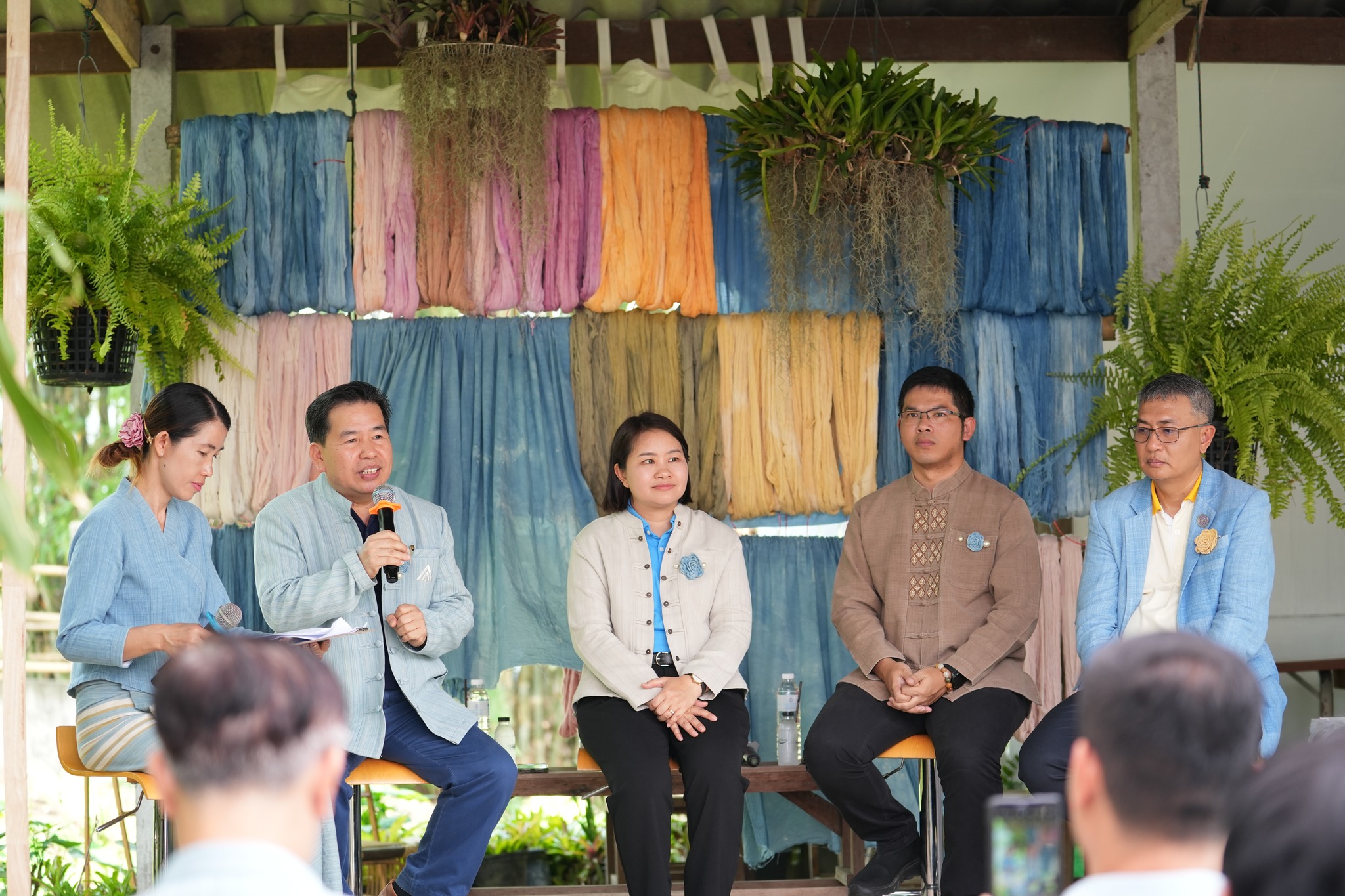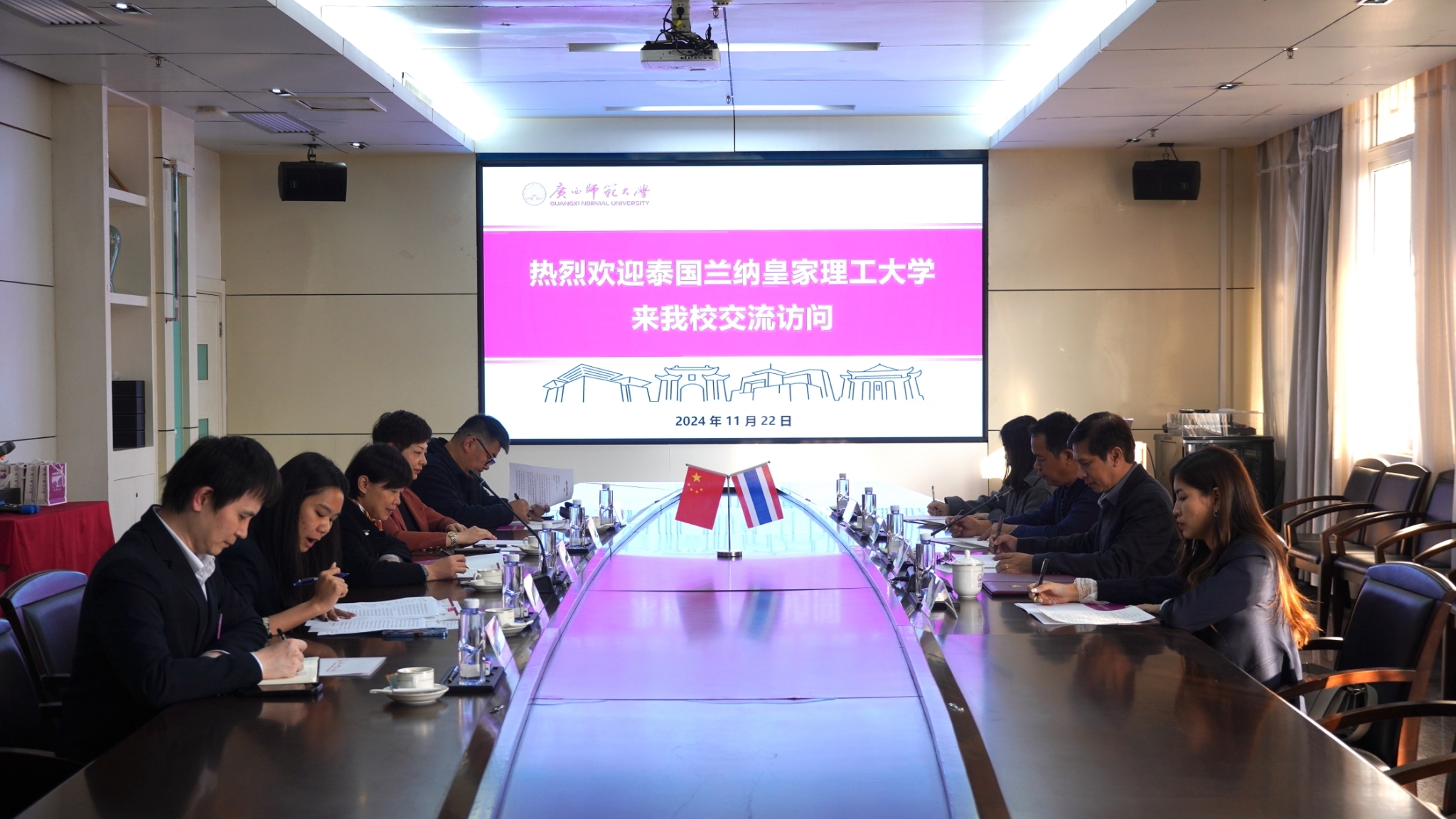Throughout 2024, the Faculty of Fine Arts and Architecture, Rajamangala University of Technology Lanna (RMUTL) continued to expand its collaborative networks at both the community and international levels, reinforcing its mission to integrate education, cultural preservation, innovation, and sustainable development in alignment with the Sustainable Development Goals (SDGs). These partnerships fostered knowledge exchange, creative practice, and cross-sector collaboration among universities, local organizations, and international institutions, advancing shared goals in cultural sustainability, design innovation, and academic development.
At the community level, the Faculty of Fine Arts and Architecture led the “Natural Indigo and Creative Craft Development Project” in collaboration with the Ban Nong Pla Man Tai Lue community in Phrao District, Chiang Mai. The project established the Learning Center for Indigo and Natural Dyeing (May 31, 2024), promoting community-based learning, cultural craft preservation, and sustainable product innovation through the Mon Lanna Model. These initiatives highlight the university’s commitment to knowledge transfer, local entrepreneurship, and environmentally responsible production, strengthening public access to cultural learning spaces and inclusive participation in sustainable local economies.

At the international level, the Faculty of Fine Arts and Architecture participated in multiple cross-border collaborations. Between December 18–20, 2024, RMUTL joined Souphanouvong University, Luang Prabang, Lao People’s Democratic Republic (Lao PDR) in the joint master planning and design workshop for the Tai Lue Textile Learning Center and Souvenir Market at Ban Phanom Village, Lao PDR. The project involved local authorities, cultural heritage experts, and business representatives, promoting regional cooperation in cultural heritage conservation and sustainable tourism development. Additionally, on November 22, 2024, RMUTL’s executive and academic representatives met with Guangxi Normal University, China, to discuss academic exchange, curriculum development, and joint research, enhancing cross-sectoral dialogue and international academic partnerships for sustainable education. Moreover, RMUTL’s Fashion, Textile, and Jewelry Design programshowcased designs at the 13th Thai Silk Fair (August 31, 2024), where students created traditional Thai silk outfits for international delegates — promoting Thai craftsmanship on the global stage.

Through these initiatives, RMUTL demonstrated its strong capacity to build regional and global networks, encourage knowledge sharing, and promote sustainable cultural development. The university’s efforts contribute not only to sustainable communities but also to international collaboration for SDG policy alignment, best practices, and community empowerment — positioning RMUTL as a dynamic educational institution driving creative, cultural, and sustainable transformation in both local and global contexts.

